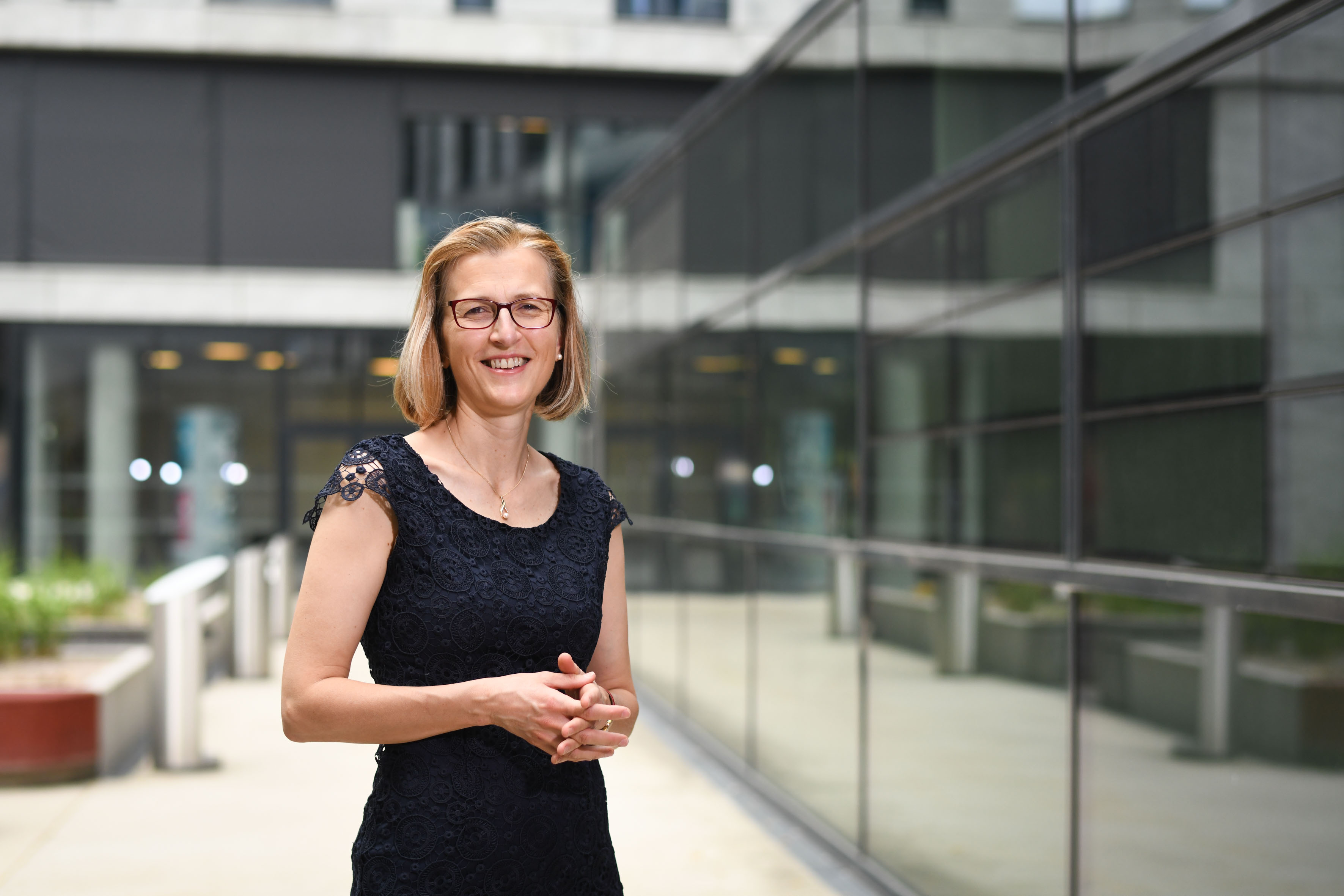“I would like to thank the international jury and the FWF for this prestigious award”, says Monika Henzinger in a first reaction. “It provides further impetus and visibility to my research and to computer science in Austria. This is very valuable because we desperately need more talent to understand how our digital world functions—and how we can improve it as well”, continues Henzinger. “The award also shows that women can be highly successful in computer science and hopefully it will encourage more women to study computer science”, concludes Henzinger.
“I would like to extend heartfelt congratulations to Wittgenstein Award winner Monika Henzinger and the six researchers receiving the START Awards”, says Minister of Science Heinz Faßmann, emphasising the importance of the two programmes for Austria as a country of research. “The ‘Austrian Nobel Prize’ gives scientists a great deal of freedom to conduct world-class research here in Austria and to build excellent teams. These are perfect conditions that can not only lead to important scientific discoveries, but also generate valuable momentum for Austria as a venue for innovation and research”, notes the Federal Minister.
“The Wittgenstein Award is the confirmation of a life devoted to outstanding research and in the case of Monika Henzinger we may well expect a lot more excellent research results still to come”, observes FWF President Christof Gattringer, pointing out the topicality of Henzinger's research: “Her research in computer science helps to protect the privacy of individuals when analysing large quantities of data. In our ever-increasingly digital world, this was already a big topic before corona, but now, with the collection of health data all over the world, the issue has become more relevant and important than ever before”, concludes Gattringer.
Wittgenstein Award Winner 2021: Algorithms for a better Internet
Monika Henzinger has been a professor at the University of Vienna since 2009. After finishing her studies in computer science in her native Germany, she received her PhD from Princeton University in the USA and worked as an assistant professor at Cornell University. A temporary switch to the private sector culminated in Henzinger’s position as Director of Research at Google. Back in the academic world, she was as a professor at EPF Lausanne in Switzerland until she finally moved to Vienna. She is the author of more than 200 scientific publications and holds more than 80 patents. Her many research awards also include two Advanced Grants of the European Research Council (ERC), which she received in 2014 and 2021. Currently, Henzinger is also the principal investigator of the FWF project “Fast Algorithms for a Reactive Network Layer”.
In her “Theory and Applications of Algorithms” research group at the University of Vienna, Monika Henzinger is specialising in designing algorithmic systems, among others, in the analysis of large quantities of data. Her areas of research include computer-aided verification, algorithmic systems based on graph theory, distributed and parallel computation, and algorithmic game theory. Recently, her research has focused on differential privacy whereby personal information is verifiably protected among large quantities of data.
Jury’s statement: Pioneering contributions to computer science
“Monika Henzinger has been a leading scientific figure both in business—among others, as the first female Director of Research—as well as in research”, says the START/Wittgenstein Jury in its statement. It continues, “Her work is innovative, impactful, and highly regarded both in top academic as well as business circles”. Monika Henzinger’s research has already earned her many awards, including two European Research Council Advanced Grants. She is a member of the Austrian Academy of Sciences, the German Academy of Sciences Leopoldina, Academia Europaea, and the Science Councils of Austria and Switzerland. She is also a Fellow of the Association of Computing Machinery—a recognition that is only awarded to the top 1% of computer scientists in the world.
The START/Wittgenstein Jury is composed of 13 leading researchers, among them, two Nobel Prize winners, Bruce Beutler (2011, Physiology/Medicine) and Stefan Hell (2014, Chemistry). The chairperson of the jury is Janet Wolff, University of Manchester, UK. You can find the members of the international START/Wittgenstein here online.

